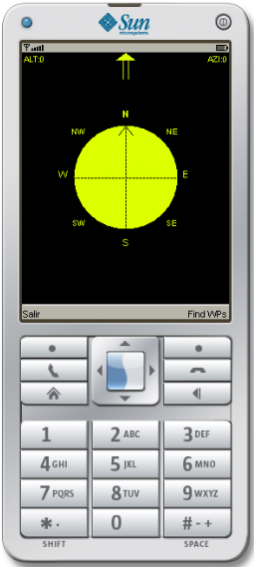Immigration
Posted by MarkWeingarten on Mar 07, 2011
The Cell Phone and the Nigerian Immigrants in Anglophone Cameroon data sheet 1148 Views
Abstract:
As an instrument for connecting people near and far, the cell phone is crucially related to mobility, that is, spatial mobility in particular migration. Irrespective of the distance, one can still stay connected with kith and kin back home through the cell phone. In this way the feeling of absence is mitigated. Though important, staying connected does not seem to be the only way in which the cell is related to or impacts on migration/migrants. What, for instance, is the relationship between the cell phone and the migrants’ survival strategies. Put differently, is the cell phone an asset or a liability to the migrants in the host society?
This study considers the impact and appropriation of the mobile phone by the Nigerian immigrants in Anglophone Cameroon. The thrust of the argument is that the cell phone is an indispensable assert to the Nigerian migrants in Anglophone Cameroon. They appropriate the cell phone in solving a number of migrant-related problems.
Posted by MarkWeingarten on Mar 07, 2011
Mobile Phone Communication in the Margins of Africa: Continuity and Change of Communication Patterns and Society data sheet 801 Views
Author:
de Bruijn, Mirjam and Brinkman, Inge
Abstract:
Anno 2010 the mobile phone seems to be an everyday device in African societies. The phone culture is a given, especially in cities but increasingly as well in rural areas where almost everybody lives in a circle of 50 km from mobile reach. It is only 20 years ago that the first cities in Africa were connected and only since a few years that the rural areas are within mobile reach. It is because of this short implementation phase that the 'normality' of the mobile phone in Africa raises many questions. Why the mobile phone was so easily adopted? What changes did it bring to African societies? Was the revolution in technological change a societal change as well; and if so in what sense and for whom?
In this paper we investigate these questions for so called 'marginal' mobile populations in Africa. These are people from marginal areas who have been pushed out of these areas for creating a better livelihood, for political reasons, etc., leading to the formation of mobile societies/communities. These are people whose relationships expand over vast social spaces, and for whom communication is a pivotal importance for their social life. Especially in these populations we expect social change due to new ICT's, especially the mobile phone. Case studies from Cameroon and Mali (pastoral nomadic societies), and Chad and Angola (refugees, displaced people for political reasons) show that we should consider mobile phones in a sequence of communication strategies of the people living in these mobile societies, that indeed means social change and economic change, but at the same time is a continuation of existing social patterns. The phone culture is part of existing communication cultures in Africa
Posted by AnneryanHeatwole on Aug 18, 2010
Today's Mobile Minute brings you coverage on the debate between native apps and web apps, an Android application that uses Spyware to mine GPS data, questions about how to define "mobile" devices, an infographic that details texting habits in the US and around the world, and a controversy over a mobile water-finding app for people crossing the Mexico/US border.
Posted by PrabhasPokharel on Feb 18, 2010
Note: This is the second of two articles about Mobile Voices, a project based in Southern California. The first post can be found here.
Voces Móviles / Mobile Voices is a Los Angeles-based citizen media project, a collaboration between the Annenberg School for Communication at the University of Southern California (ASC) and the Institute of Popular Education of Southern California (IDEPSCA). Mobile Voices describes itself as "a platform for immigrant workers in Los Angeles to create stories about their lives and communities directly from cell phones. [The project] helps people with limited computer access gain greater participation in the digital public sphere."
| Mobile Voices: Creating a Voice for Day Laborers data sheet 3894 Views |
| Countries: |
United States
|
Posted by sharakarasic on Nov 19, 2008
On day three of MobileActive ’08, I attended a session led by engineer Blaine Cook, formerly Twitter’s Chief Architect.
Cook summarized what the group was looking for:
“We would like an ongoing, up-to-date tool. A migration tool that keeps us moving from one social network to the next so NGO’s can move and migrate from platform to platform. We need the ability for any one organization to connect with any other organization.”
Mixit was mentioned as a useful tool, but Cook noted cross-border interoperability issues: Mixit requires GPRS which isn’t that credible across borders. Using a SIM card costs a lot to text across borders. Cook suggested that there could be a network where you send to SIM chip in Uganda from Uganda, but set up a network with nodes to dramatically cut costs of cross-border activism.
Cook said that it costs around $20,000-30,000 for a short code in the US and you can send as many SMS’s as you like. He mentioned that Twitter got a bill for $37,000 in Egypt for only 6000 Twitter users.
Posted by CorinneRamey on Nov 18, 2007
Editor's NOTE, September 2010: The Transborder Immigration Tool has, since this post was first put online in 2007, generated quite a bit of controversy. As far as we know, the tool was never deployed with anyone (we are checking with Ricardo Dominguez on the state of development of the tool) but since then has risen to the attention (as the art project/concept/idea) of even Glenn Beck, a US conservative commentator. A YouTube video of Ricardo describing the project from April 2010 is here, and an article in the San Diego City Beat outlines the political story of the last year of the Transborder Immigration Tool.
***
